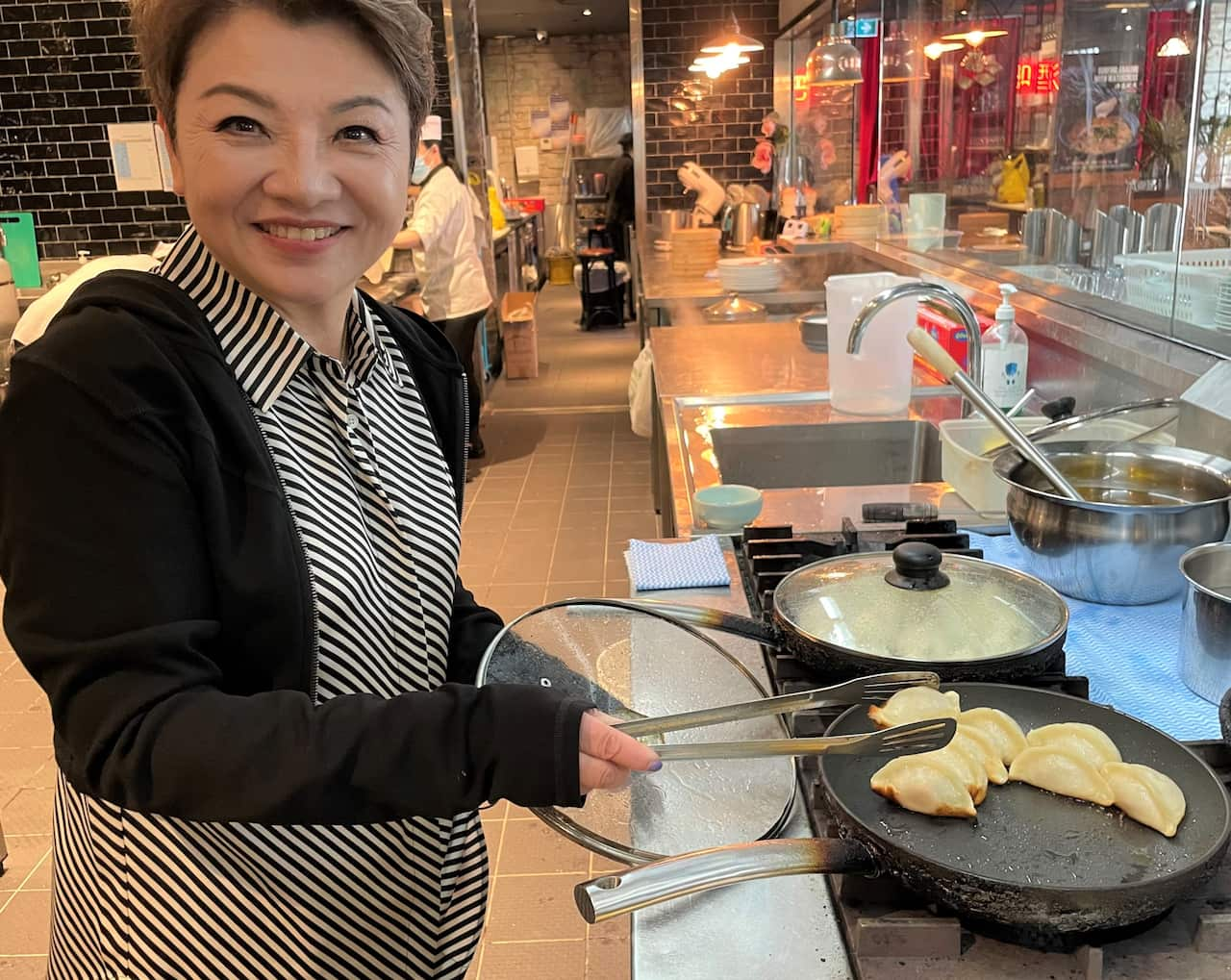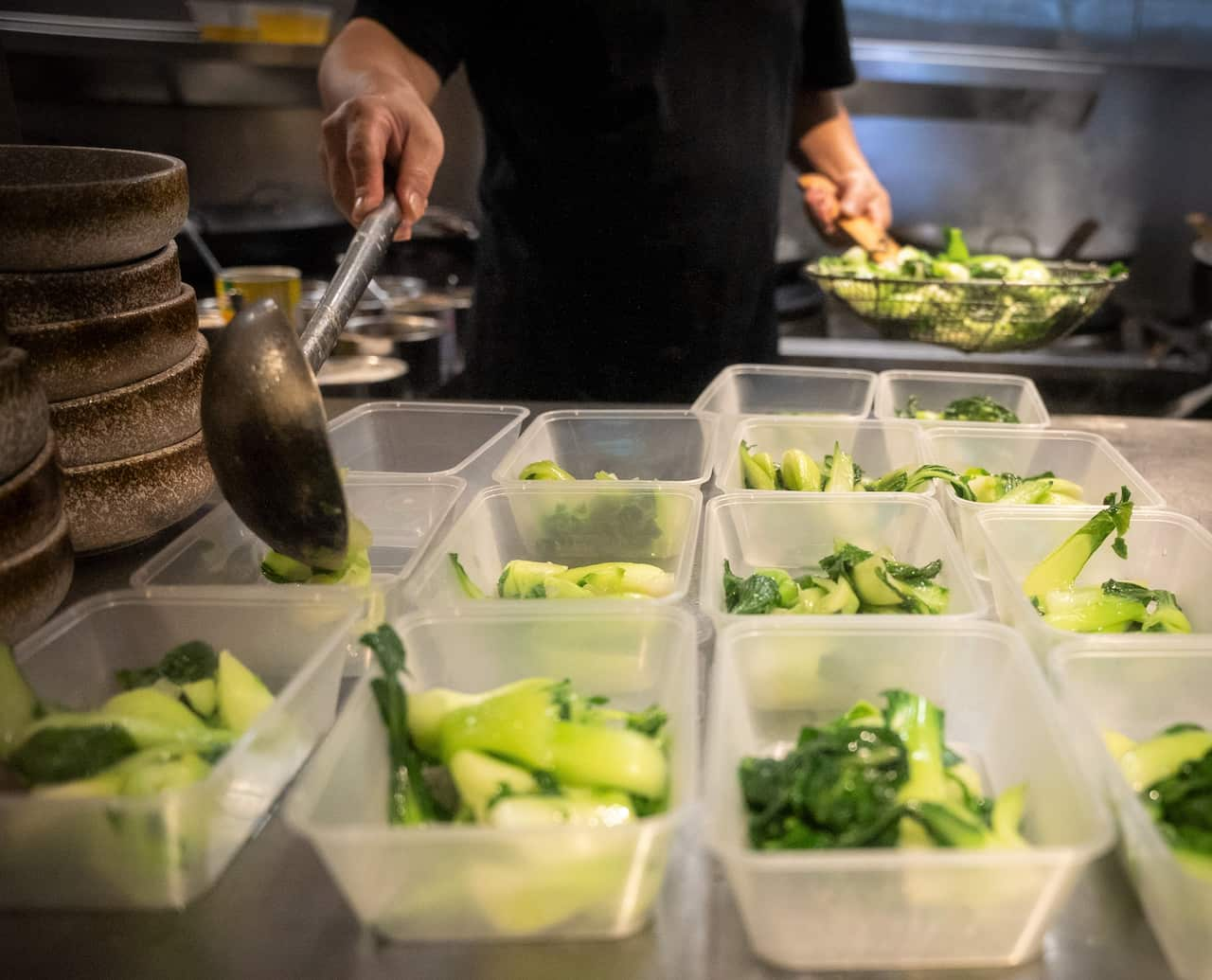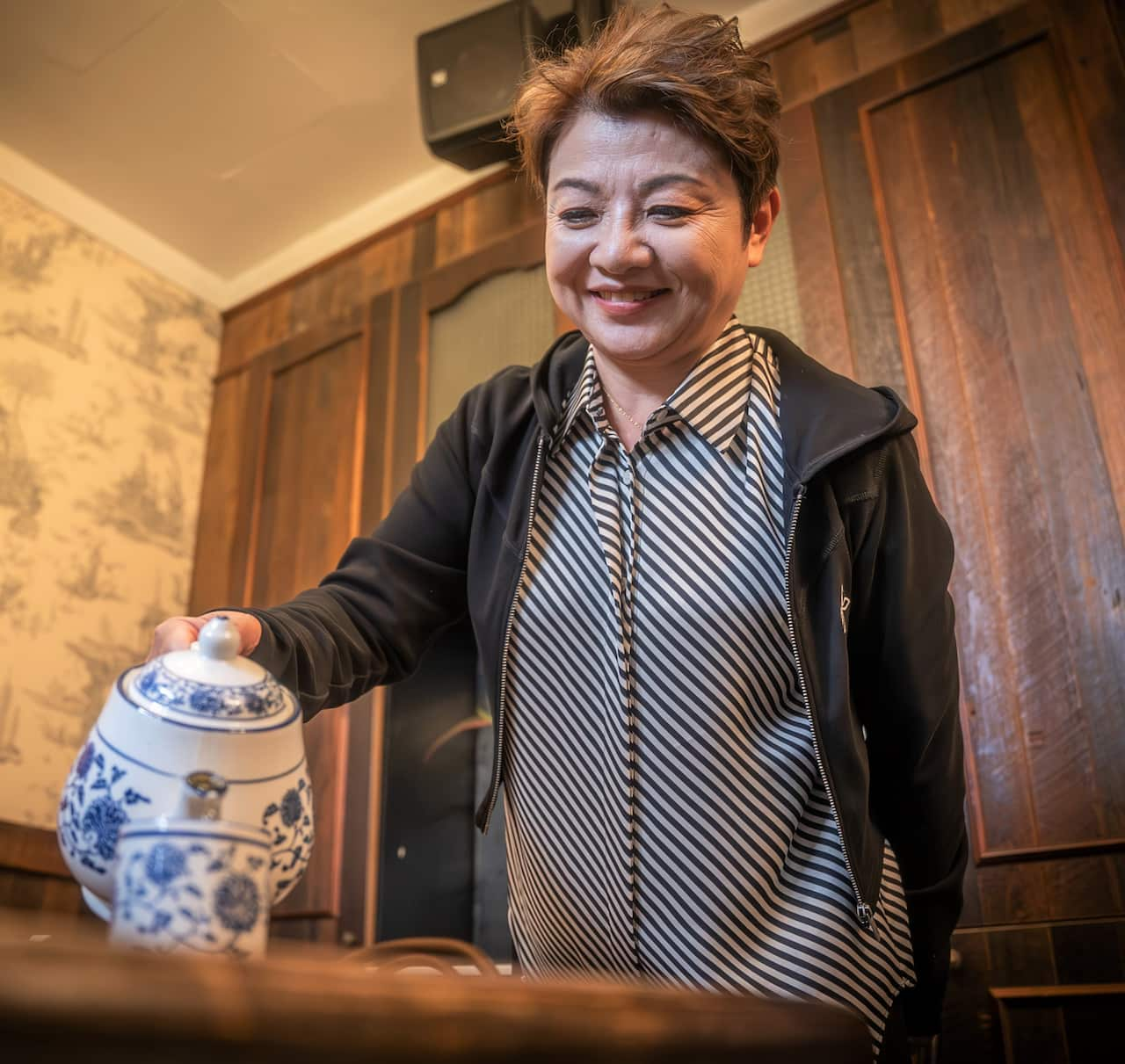Jennifer Du is keeping a close watch as staff make xiao long bao (soup filled dumplings) in the kitchen of her busy restaurant. Business is brisk and that means long hours and hard work for Du, who migrated from Shanghai in 1989.
"Of course for me there are no weekends at all. In 35 years here [in Australia], I didn't have really have a holiday, a proper holiday. It's every single day working."
Her Taste of Shanghai restaurant in Sydney's Burwood offers dim sum, stir fries and fresh seafood, based on the flavours of northern China and Shanghai.
The concept is so successful, that since opening the first venue in 2007, Du has grown to 19 separate venues today, and 11 of them are franchises.

Dim sum being made in the restaurant kitchen. Source: SBS / Spencer Austad
"He worked for a five star hotel. So, every dish, every meal was fantastic," she says.
"And I always say thank you grandpa. He looked after me when I was young and he gave me so many good memories. And that gave me sort of a spritz to carry on this business."
If hard work is key to her success, that ethos is being tested by current business conditions.

Jennifer Du keeps a close watch on all aspects of the business. Source: SBS / Sandra Fulloon
"That part of the bill remains very high. We have tried to increase our menu prices to compensate. But you have to watch the market as well. So that makes net profit really tight."
It’s a persistent problem for Australia’s 54,000 restaurant and café owners.

A range of dishes served at Taste of Shanghai. Source: SBS / Sandra Fulloon
"In terms of the costs are most detrimental to business, number one is fuel prices, followed by utility costs and insurance, "says Gavan Ord, CPA Australia’s senior business and investment policy adviser.
While inflation may be below 4 per cent, food prices have soared and remain high.
Dave Yan of DeLovely Cake Designs in Chatswood, says: "In the baking industry, our raw materials have generally increased by 30 to 40 per cent in recent years, with some materials even doubling."

Dave Yan from DeLovely Cake Designs. Source: SBS / Ranky Law / SBS Chinese
"Considering this, the pressure on our business is significant!"
Australian credit reporting agency CreditorWatch says business insolvencies are rising, with food and beverage outlets most at risk.
"There is certainly an elevated number of insolvencies and administrations at the moment, and that will continue to climb," says CEO Patrick Coghlan.

Food and beverage businesses face economic headwinds. Source: SBS / Spencer Austad
The Food and Beverage Services failure rate sits at 7.44 per cent, ahead of Public Administration and Safety at 5.66 per cent and Arts and Recreation Services at 5.42 per cent.
"Unfortunately, running a restaurant, bar or cafe is tough — even in boom times. That's the honest truth and the brutal truth about it," says Coghlan.
"So, when you then have these macroeconomic headwinds, like inflation really starting to bite the consumers spending patterns, it becomes extremely difficult, or nearly impossible for some owners to run a profitable business. "
With small business owners are calling for relief in the federal budget due to be handed down on 14 May.
"The costs relating to electricity and fuel are increasing very rapidly. So, if the government could provide some support for small business in this aspect it would definitely be very welcomed, "says Dave Yan.
CPA Australia’s Gavan Ord agrees: "Small businesses are facing similar cost pressures that households are facing. So, the first focus of the government in this budget must be to alleviate the cost pressures on business."
"And these small businesses operate on very tight margins already.
"The small business energy rebate could be extended again, but governments also need to look more deeply at some of the costs they impose on business."

Jennifer Du hopes for relief from rising costs. Source: SBS / Spencer Austad
"I would like government to cut to that penalty rate in a simple way to help us to pass this difficult time," she said.
"Part of the problem is a shortage of labour. We are short staffed mainly in kitchen side, the dim sum side, also the front desk.
"So, we monitor our profit and loss sheet every week. If [loss] is too high, we cut back on wastage or [adjust rostering] if we have too many people in one position. So, that is a very important part of our business. "
CPA Australia’s Gavan Ord says addressing Australia’s staff shortage must be a priority, particularly in hospitality and in construction where up to half a million extra workers are needed.

Gavan Ord from CPA Australia. Source: Supplied / CPA Australia
"For new skilled migrants struggling to find work in their area of expertise, the government could work with industry associations, to run training programs explaining how the Australian workforce operates, understanding Australian laws and Australian conditions."
CreditorWatch’s Coghlan says despite an interest rate cut looking less likely this year, there are some green shoots.
"Where there is some positivity is the stage three tax cuts that are coming from July 1. So, if nothing else that encourages responsible spending that flows through to industries that rely on discretionary spending.
"But, of course, we don't want it to put pressure on the inflation read. "

Jennifer Du at her Sydney restaurant. Source: SBS / Spencer Austad
"I came to Australia 1989, when interest rates were 17 point something, or 18 per cent. So that's why I'm not really scared of that part," she said.
"To be successful, you must be involved in every detail of the business. As the owner, you can not sit back, or go on holiday.
"Every single detail, you have to know!"
This story was produced in collaboration with SBS Chinese.










